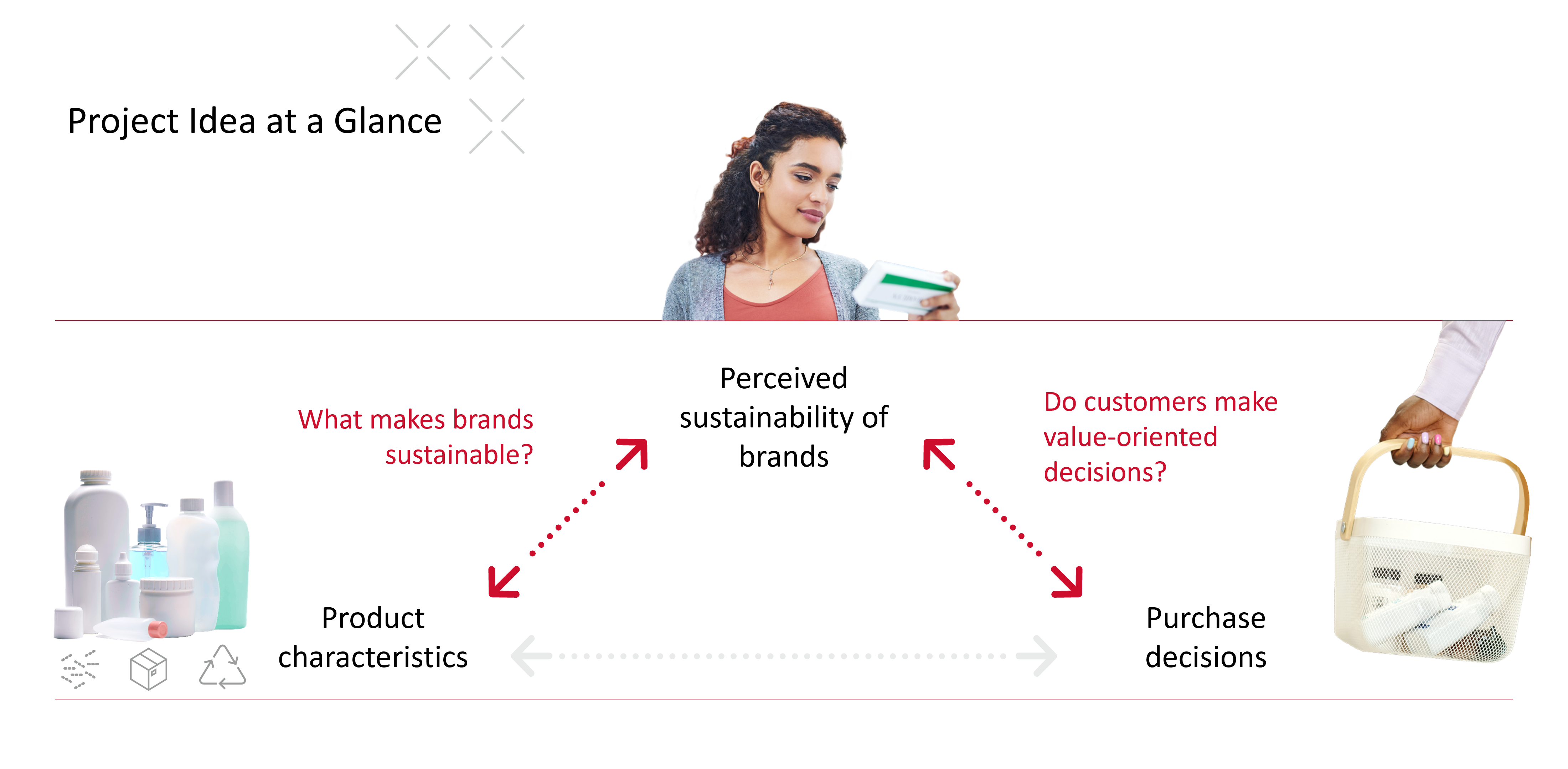Research
Sustainable brands, sustainable purchases?
In a world marked by the climate crisis, dwindling natural resources and social inequality, there is a growing demand for companies and brands to make a positive contribution to society and the environment. However, the marketing of sustainable products still faces the major challenge of the so-called “attitude-behavior gap”: many consumers express a positive attitude toward sustainable products, but they often do not translate their attitudes into action when making purchases. One reason for this gap between attitudes and behavior is insufficient information; sustainability-oriented customers only translate their attitudes into decisions in the first place if brands are also perceived as sustainable.
Given the flood of sustainability claims and labels with green promises, the question therefore arises: When does sustainability actually reach customers and also lead to actual sustainable purchasing decisions?
Research method
To investigate these questions, we are cooperating with dm, Germany’s largest drugstore retailer, a company where sustainable action has always been firmly anchored in the corporate purpose. We analyze product and purchase data of selected brands from the dm product portfolio, conduct a consumer survey on brand perception using the Perceived Purpose Scale developed at NIM (Zürn & Unfried, 2024) and test the correlations.
Our project focuses on two key research questions:
1. What makes brands sustainable?
Which product characteristics lead customers to perceive brands as sustainable?
2. Do customers make value-oriented decisions?
Are there correlations between brand perception and customers’ actual purchasing decisions?
Research contribution
- Providing insights into sustainable brand perception and sustainable purchasing behavior
- Determining the contribution of brand perception to the attitude-behavior gap
- Further validating the Perceived Purpose Scale as a new instrument for measuring perceived brand purpose
Managerial implications
- Promoting sustainable consumption with insights that enable companies to help consumers make sustainable choices and to increase the sales of sustainable products
- Targeted product development through the identification of product features that lead to a higher perception of sustainability
- Optimizing communication with insights that allow focus on those sustainability aspects that really resonate with customers and lead to more sustainable purchasing behavior
- Measuring the success of marketing campaigns through our Perceived Purpose Scale measurement tool, which enables us to evaluate the current brand perception and the success of marketing campaigns aimed at it
Project team
- Nina Hesel, Senior Researcher, NIM, nina.hesel@nim.org
- Dr. Michael K. Zürn, Senior Researcher, NIM, michael.zuern@nim.org
- Dr. Fabian Buder, Head of Future & Trends Research, NIM, fabian.buder@nim.org
Cooperation partner
- dm-drogerie markt GmbH + Co. KG
Contact

